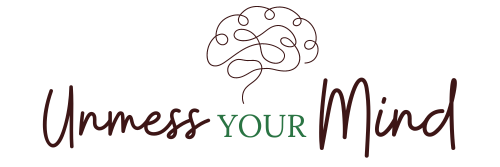I We hear a lot about boundaries these days.
“Set boundaries.”
“Protect your peace.”
“Block toxic people.”
But here’s the thing: a lot of what we call “boundaries” are actually something else entirely.
Let’s clear it up.
Wait, That’s Not a Boundary?
If you’ve ever said something like:
“If you yell at me again, I’m leaving.”
That’s a decision.
A consequence.
It’s a totally valid response—and maybe even necessary—but it’s not what therapists call a boundary. A boundary isn’t about controlling someone else. It’s about regulating you.

It’s still likely a good decision and good for you for taking a stance.
It’s just not a boundary when you’re using “Vickey Language.”
(BTW – “Vickey Language” is actually “Living Relationally.” This is a whole new lens through which you will be viewing the world and acting in it when you begin working with me)
So What Is a Boundary Then?
Let’s shift how we define it.
Healthy boundaries are internal. They help you stay grounded, calm, and connected to yourself—especially in difficult moments.
Here are three examples that capture what healthy emotional boundaries sound like:
- “You and I disagree, but that doesn’t mean I’m unsafe.”
- “I don’t have to say everything I think.”
- “I don’t have to absorb everything I hear.”
Those last two? Think of them as sacred space:
- Between what I think and what I say.
- Between what I hear and what I take in.
That space is where regulation lives. That space is where self-worth shows up.
Boundaries vs. Consequences: The Real-Life Version
Let’s break it down with an analogy:
You can drive 95 mph on the highway.
But you might get a ticket—or crash your car.
You can show up late to work every day.
But you might get written up or let go.
There’s no one stopping you. You’re free to make your choices. But the outcomes? Those are consequences.
Same goes for relationships. You can keep showing up to a conversation that always ends in shouting—or you can choose to walk away. That’s not being dramatic. That’s honoring your line.
The Self-Worth Connection
It’s hard to set boundaries or enforce consequences if you don’t believe you’re allowed to.
You have to trust:
- That your needs are real.
- That your peace matters.
- That you don’t have to stay where you’re not respected.
That belief comes from healthy self-esteem. The kind that says:
“I have worth because I exist. Not because you agree with me. Not because you like me. Just because I’m human.”
When you know that, boundaries feel less like walls—and more like clarity.
Let’s Say It One More Time:
- Boundaries are about what you will and won’t say, do, or absorb.
- Consequences are what you choose to do when someone violates those lines.
Both are valid. Both are needed.
And when your language gets clearer, your decisions do too. Boundaries aren’t about being rigid or unkind. They’re about knowing where you end and someone else begins—and making choices that support that truth.
Change the way you look at Boundaries and Consequences.
Both are still true and valid. I’m not negating anything you’ve been doing.
When your language becomes more clear, your decisions will come more easily and make more sense to you.
Want to learn more about my Lens? Contact me to see if we’re a good fit to work together! I offer therapy online or in Norwood, MA in my office
